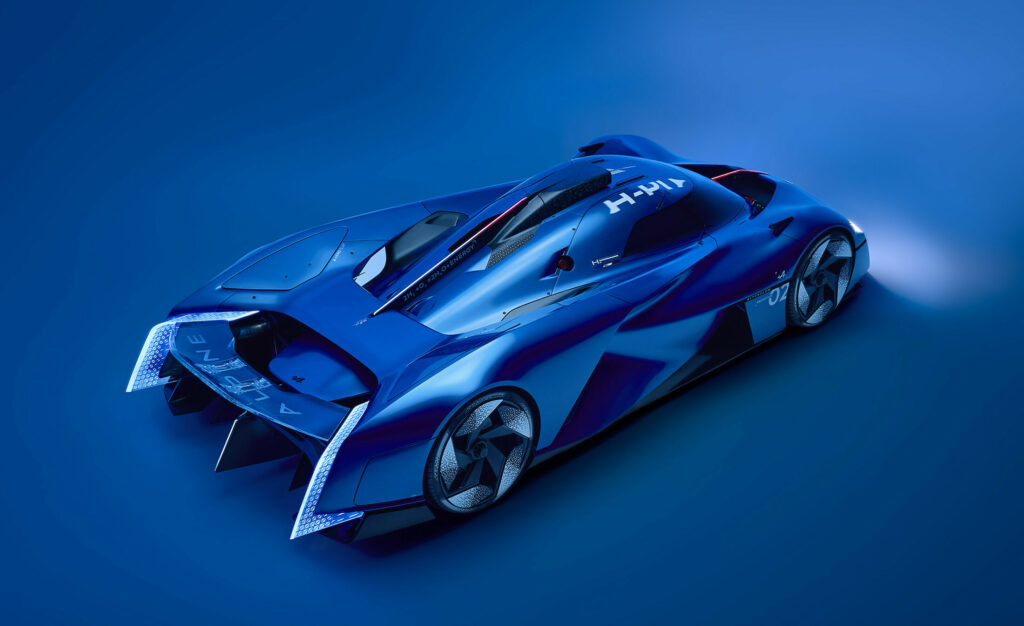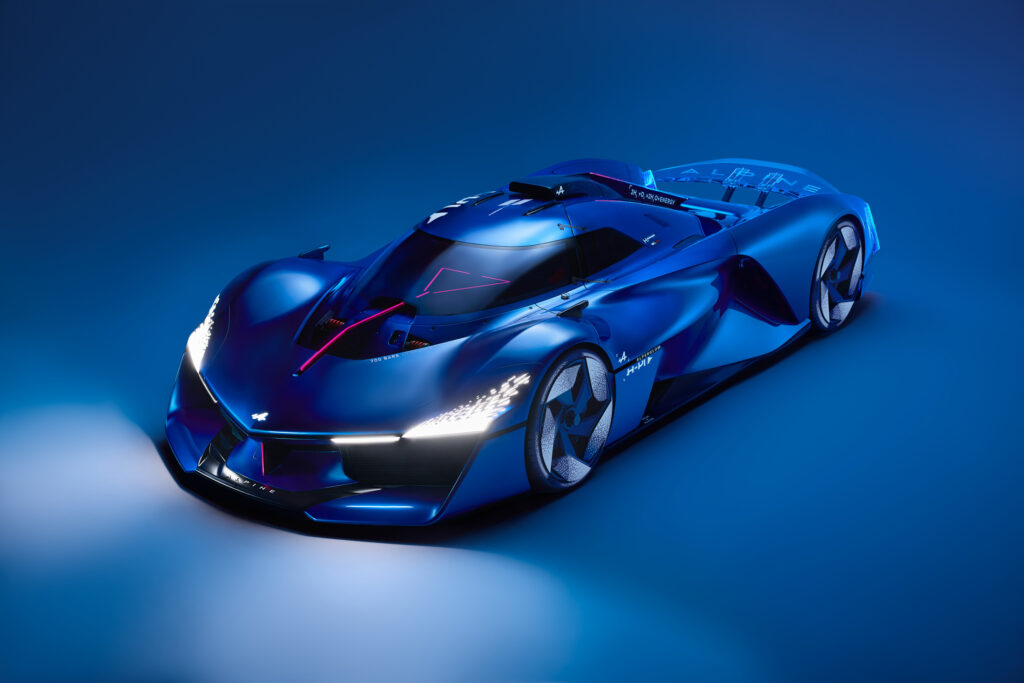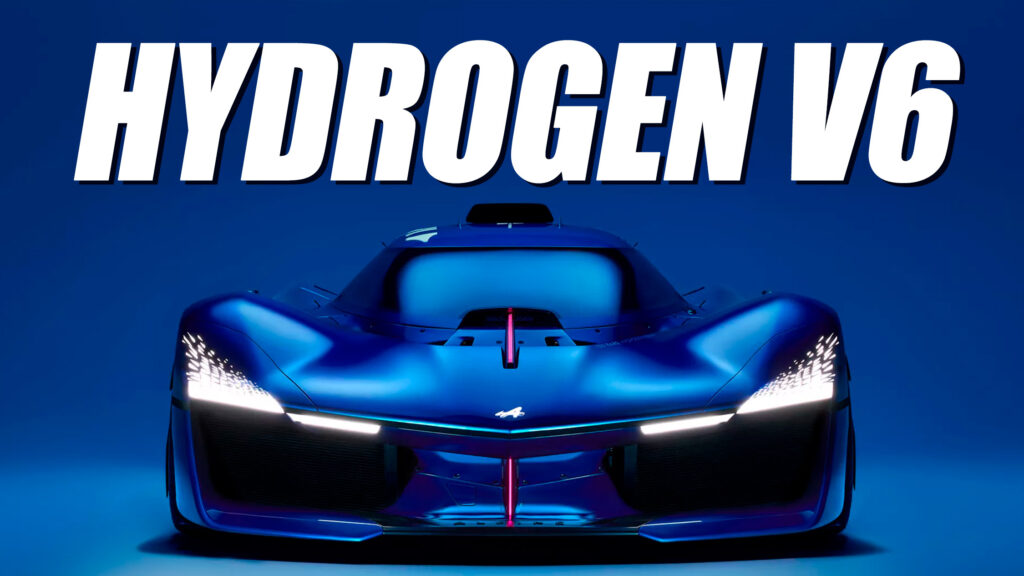- The radical concept was supposed to make its dynamic debut at last weekend’s 6 Hours of Spa-Francorchamps.
- Powering the concept is a 2.0-liter four-cylinder, but a more powerful hydrogen V6 is in the works.
- Alpine’s design chief says the brand has always had a production version in mind.
Alpine has expressed hope that the radical Alpenglow Hy4 concept could spawn a limited-run production model with its first hydrogen-combustion engine.
The French carmaker brought the radical Alpenglow Hy4 concept to the 6 Hours of Spa-Francorchamps last weekend with a plan to complete demonstration laps around the famous circuit. Unfortunately, an electrical fault prevented Alpine from bringing it onto the track. Nevertheless, the carmaker has indicated we could see more of the concept in the future and this could include a road-going model.
Read: Alpine Alpenglow Hy4 Is 2022’s Hydrogen-Powered Concept Made Real
“Why not?” Alpine design chief Antony Villain told Autocar when asked if the car will reach production. “Why not have that on the roads? We want to keep both ways [hydrogen-combustion and battery-electric] possible. Maybe we could do a little series of these cars for the road. That could be just right.”
The original Alpenglow concept was based around a bespoke frame and was a single-seater. The updated Hy4 concept is more realistic with a two-seat cockpit and a Ligier LMP3 chassis. Villain said the marque always had the idea of a production version in mind when designing the concept.
Driving the Hy4 Concept is a 2.0-liter turbocharged four-cylinder fueled by hydrogen and muscling out 335 hp. However, Alpine is developing a new hydrogen-fueled V6 that it’ll drop into an updated Hy4 Concept later this year. This engine will be more powerful than the four-cylinder and is being developed with the aim of eventually spawning a race engine and, possibly, even a road-legal version.

Making a hydrogen-fueled combustion engine fit for production won’t be easy. According to Alpine’s chief hydrogen engineer Pierre-Jean Tardy, controlling knock will be a challenge and the engine will have to run learner than a gas-powered one.
“Running lean with hydrogen produces lower-temperature exhaust gas, which means that for a turbocharger, [you have to work the compressor harder] with less energy available on the turbine,” he said. “There’s a sort of imbalance between the turbine and the compressor, which is even higher than on a diesel engine. This could cause some lag time problems that you will have to get around by other means.”




